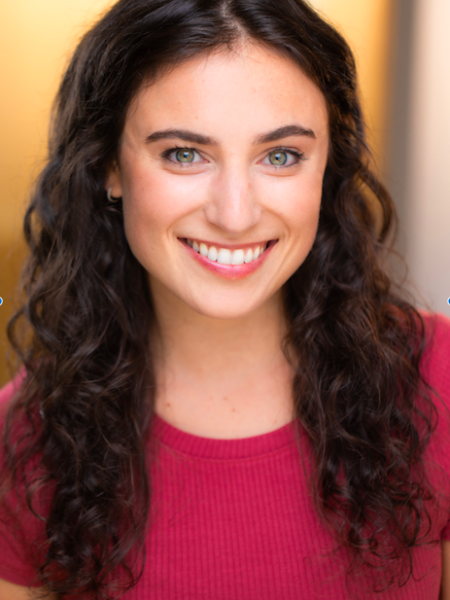
For our Alumni Q&A series, Rebecca Mellinger BA ’17 discusses her work using entertainment and media platforms to drive social change, advice for students and more.
Tell us a little bit about your professional background.
While I was studying acting at USC, I started exploring different modalities that infused entertainment and social change as I knew that was the intersection I wanted to work in. After I graduated, I started working for USC’s Medical Clowning Program [now the USC Comic+Care Program], focusing on fundraising efforts for the nonprofit, programming, as well as helping to launch the first clinical trial on the efficacy of medical clowning in the U.S. After working for the Medical Clowning Program, which gave me an incredible knowledge of nonprofit management and partnerships, I transitioned into Impact Producing for various documentary films. [This] then led me to become the Impact Producer on Paris Hilton’s Youtube Originals Documentary, “This is Paris.” I’ve been supporting Paris’ impact journey for two years now, which has been the most rewarding, challenging, and exciting journey of my life! Paris really understands the value of using her platform for social change, so she officially launched the impact arm of her media company, 11:11 Media Impact, of which I am now the Director!
What are you currently working on professionally?
Right now, I am in production on the second season of Trapped in Treatment, a docu-style podcast I co-host. This podcast is produced by Paris Hilton, Warner Bros. Unscripted TV In Association With Telepictures, and iHeart Media. In addition, we are about to introduce a federal bipartisan bill called the Stop Institutional Child Abuse Act that would increase protections for youth in abusive residential treatment facilities, as well as increase transparency for consumers and accountability of the providers.
What was your best USC experience?
Way too many “best days ever” to pick just one!
What do you miss about college, SDA specifically?
I miss just walking on campus and seeing 20+ people you know during one walk from building to building! That innate sense of community is something so special that you don’t fully realize it until you leave! I also miss late nights in the theater with my MTR Family – luckily, we are all still super close and have the best time reminiscing funny memories of those late nights!
Was there a class or professor that was particularly meaningful or influential during your time at the School? Why?
Brent Blair and Zach Steel both introduced me to all the ways storytelling and entertainment could influence social change. I loved working with and learning from the two of them!
What (if any) productions did you work on?
Grease, Into the Woods, The Country Wife, The Tempest, 4.48 Psychosis, and all MTR productions for four years!
What was your favorite theatre at SDA? Why?
The Bing! Nothing is better than performing on a big stage!
What can students do during their training to prepare themselves for the professional world?
Try everything/anything that inspires you! I would have never found Medical Clowning if I hadn’t taken Zach’s class as an elective which then became the foundation of my professional career. I would also just say have fun and take risks in class – I was always a bit shy and wish I wasn’t, as there is nothing like being in school where you have the safety net of failing.
What lessons from your SDA training have you applied to your professional life?
While I am not acting professionally anymore, I still use all of my training! My acting background has given me the ability to be confident and effective in high-stakes work settings. I also would have never thought I would have a podcast and absolutely use all my vocal training when interviewing and recording our narrative pieces!